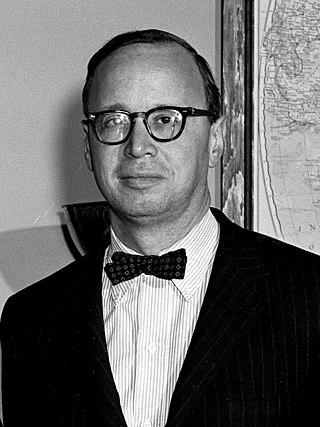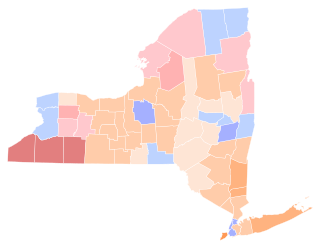Related Research Articles
The silent majority is an unspecified large group of people in a country or group who do not express their opinions publicly. The term was popularized by U.S. President Richard Nixon in a televised address on November 3, 1969, in which he said, "And so tonight—to you, the great silent majority of my fellow Americans—I ask for your support." In this usage it referred to those Americans who did not join in the large demonstrations against the Vietnam War at the time, who did not join in the counterculture, and who did not participate in public discourse. Nixon, along with many others, saw this group of Middle Americans as being overshadowed in the media by the more vocal minority.

A Reagan Democrat is a traditionally Democratic voter in the Northern United States, referring to working class residents who supported Republican presidential candidates Ronald Reagan in the 1980 or the 1984 presidential elections, or George H. W. Bush during the 1988 presidential election. The term Reagan Democrat remains part of the lexicon in American political jargon because of Reagan's continued widespread popularity among a large segment of the electorate.

David Jeffrey Frum is a Canadian-American political commentator and a former speechwriter for President George W. Bush, who is currently a senior editor at The Atlantic as well as an MSNBC contributor. In 2003, Frum authored the first book about Bush's presidency written by a former member of the administration. He has taken credit for the famous phrase "axis of evil" in Bush's 2002 State of the Union address.

Christopher John Matthews is an American political commentator, retired talk show host, and author. Matthews hosted his weeknight hour-long talk show, Hardball with Chris Matthews, on America's Talking and later on MSNBC, from 1997 until March 2, 2020. He announced on his final episode that he was retiring, following an accusation that he had made inappropriate comments to a Hardball guest four years earlier. On that occasion, he stated: "The younger generation's out there ready to take the reins. We see them in politics, in media, in fighting for their causes. They're improving the workplace."

Arthur Meier Schlesinger Jr. was an American historian, social critic, and public intellectual. The son of the influential historian Arthur M. Schlesinger Sr. and a specialist in American history, much of Schlesinger's work explored the history of 20th-century American liberalism. In particular, his work focused on leaders such as Harry S. Truman, Franklin D. Roosevelt, John F. Kennedy, and Robert F. Kennedy. In the 1952 and 1956 presidential campaigns, he was a primary speechwriter and adviser to the Democratic presidential nominee, Adlai Stevenson II. Schlesinger served as special assistant and "court historian" to President Kennedy from 1961 to 1963. He wrote a detailed account of the Kennedy administration, from the 1960 presidential campaign to the president's state funeral, titled A Thousand Days: John F. Kennedy in the White House, which won the 1966 Pulitzer Prize for Biography or Autobiography.

Theodore Chaikin Sorensen was an American lawyer, writer, and presidential adviser. He was a speechwriter for President John F. Kennedy, as well as one of his closest advisers. President Kennedy once called him his "intellectual blood bank". Notably, though it was a collaborative effort with Kennedy, Sorensen was generally regarded as the author of the majority of the final text of Profiles in Courage, and stated in his memoir that he helped write the book. Profiles in Courage won Kennedy the 1957 Pulitzer Prize for Biography. Sorensen helped draft Kennedy's inaugural address and was also the primary author of Kennedy's 1962 "We choose to go to the Moon" speech.

Robert M. "Bob" Shrum is the director of the Center for the Political Future and the Carmen H. and Louis Warschaw Chair in Practical Politics at the University of Southern California, where he is a professor of political science in the Dornsife College of Letters, Arts and Sciences. He is a former American political consultant, who has worked on numerous Democratic campaigns, including as senior advisor to the Kerry-Edwards campaign in 2004 and to the Gore-Lieberman campaign in 2000. Shrum wrote the famous speech Ted Kennedy gave at the 1980 Democratic National Convention conceding to and supporting President Jimmy Carter. He has been described as "the most sought-after consultant in the Democratic Party." Shrum served as speechwriter to New York Mayor John V. Lindsay from 1970 to 1971, speechwriter to Senator George McGovern's 1972 presidential campaign and speechwriter and press secretary to Senator Edward M. Kennedy from 1980 to 1984 and political consultant until 2009.

The 1970 United States Senate elections was an election for the United States Senate. It took place on November 3, with the 33 seats of Class 1 contested in regular elections. Special elections were also held to fill vacancies. These races occurred in the middle of Richard Nixon's first term as president. The Democrats lost a net of three seats, while the Republicans and the Conservative Party of New York picked up one net seat each, and former Democrat Harry F. Byrd Jr. was re-elected as an independent.

The 1964 United States Senate elections were held on November 3. The 33 seats of Class 1 were contested in regular elections. Special elections were also held to fill vacancies. They coincided with the election of President Lyndon B. Johnson by an overwhelming majority, to a full term. His Democratic Party picked up a net two seats from the Republicans. As of 2022, this was the last time either party has had a two-thirds majority in the Senate, which would have hypothetically allowed the Senate Democrats to override a veto, propose constitutional amendments, convict and expel certain officials, or invoke cloture without any votes from Senate Republicans. In practice, however, internal divisions effectively prevented the Democrats from doing so. The Senate election coincided with Democratic gains in the House in the same year.
Frank Fabian Mankiewicz II was an American journalist, political adviser, president of National Public Radio, and public relations executive.

RFK is a 2002 American historical drama television film directed by Robert Dornhelm and written by Hank Steinberg. The film stars Linus Roache as Robert F. Kennedy. David Paymer, Martin Donovan, Jacob Vargas, Marnie McPhail, Sergio Di Zio, Sean Sullivan, Ving Rhames and James Cromwell also star. It premiered on the FX Network on August 25, 2002.

On April 4, 1968, United States Senator Robert F. Kennedy of New York delivered an improvised speech several hours after the assassination of Martin Luther King Jr. Kennedy, who was campaigning to earn the Democratic Party's presidential nomination, made his remarks while in Indianapolis, Indiana, after speaking at two Indiana universities earlier in the day. Before boarding a plane to attend campaign rallies in Indianapolis, he learned that King had been shot in Memphis, Tennessee. Upon arrival, Kennedy was informed that King had died. His own brother, John Fitzgerald Kennedy had been assassinated on November 22, 1963. Robert F. Kennedy would be also assassinated two months after this speech, while campaigning for presidential nomination at the Ambassador Hotel in Los Angeles, California.

Robert F. Kennedy's Day of Affirmation Address is a speech given to National Union of South African Students members at the University of Cape Town, South Africa, on June 6, 1966, on the University's "Day of Reaffirmation of Academic and Human Freedom". Kennedy was at the time the junior U.S. senator from New York. His overall trip brought much attention to Africa as a whole.

The 1970 New York state election was held on November 3, 1970, to elect the governor, the lieutenant governor, the state comptroller, the attorney general and a U.S. Senator, as well as all members of the New York State Assembly and the New York State Senate.
Sergio Di Zio is a Canadian actor. He starred in the television series Flashpoint as Michelangelo "Spike" Scarlatti until the show concluded on December 13, 2012. His other works include The Lookout, Cinderella Man, Senior Trip; the television series This is Wonderland, Northern Town; as a voice actor for the animated series Stoked and Babar and the Adventures of Badou. He also appeared in the stage debut of Léo written by Rosa Labordé for which he received a Dora Award nomination in 2006. Di Zio was recently part of an animated show called Grojband, until the show concluded in May 2015. He more recently has transitioned to short films, however he continues to take on various projects.

On the Mindless Menace of Violence is a speech given by United States Senator and presidential candidate Robert F. Kennedy. He delivered it in front of the City Club of Cleveland at the Sheraton-Cleveland Hotel on April 5, 1968, the day after the assassination of Martin Luther King Jr. With the speech, Kennedy sought to counter the King-related riots and disorder emerging in various cities, and address what he viewed as the growing problem of violence in American society.

The 1970 United States Senate election in New York was held on November 3, 1970, to elect New York's Class I Senator in its delegation. Representative Charles Goodell had been appointed by Governor Nelson Rockefeller to serve the remainder of Robert F. Kennedy's senatorial term, following Kennedy's assassination.

Joseph Patrick Kennedy III is an American lawyer, politician and diplomat who currently serves as United States Special Envoy for Northern Ireland since 2022. Prior to this, Kennedy served as the U.S. representative for Massachusetts's 4th congressional district from 2013 to 2021. A member of the Democratic Party, he represented a district that extends from Boston's western suburbs to the state's South Coast. He worked as an assistant district attorney in the Cape and Islands and Middlesex County, Massachusetts, offices before his election to Congress. In January 2021, he became a CNN commentator.
"Conflict in Vietnam and at Home" was a speech given on March 18, 1968, by U.S. Senator Robert F. Kennedy at Kansas State University. Having only declared his candidacy for president two days before, the address was Kennedy's first official campaign speech. He discussed student protests, consequences of the Vietnam War, and Lyndon B. Johnson's leadership of the country.